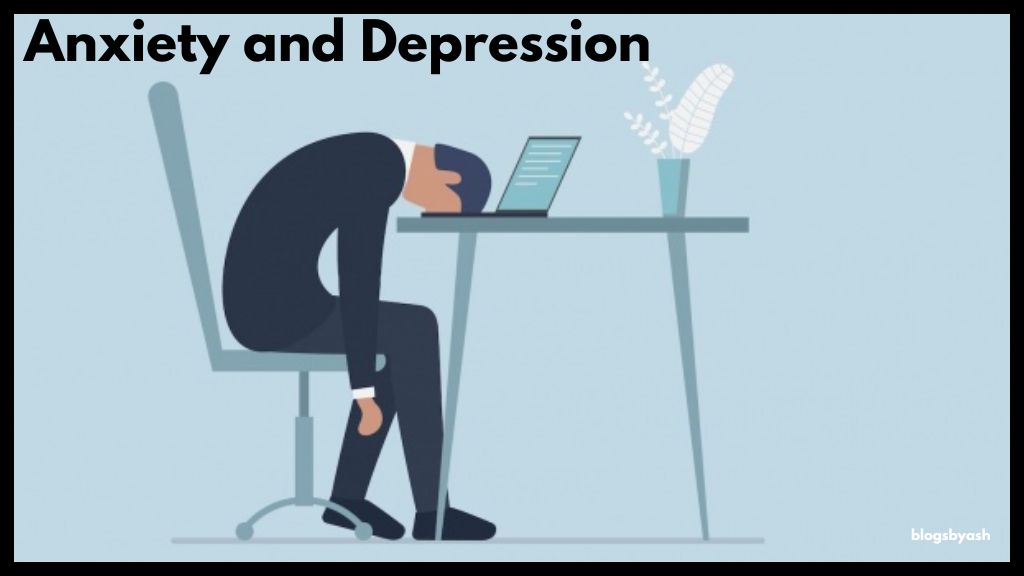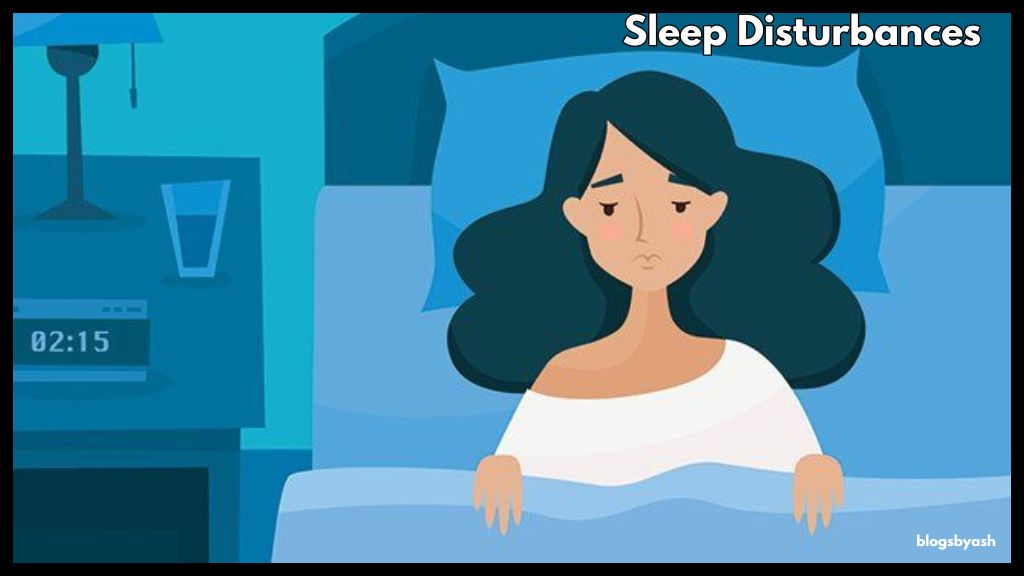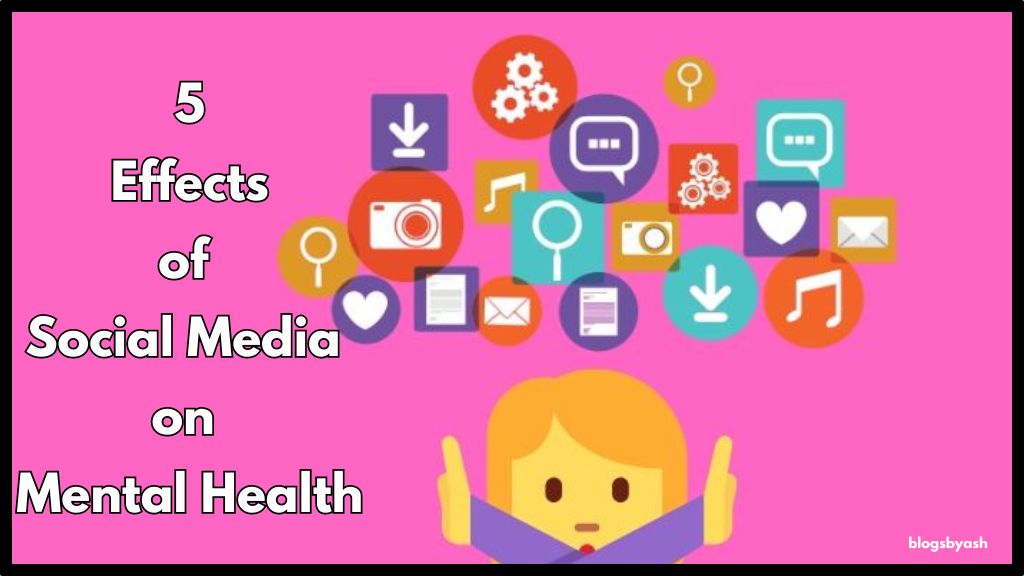5 Effects of Social Media on Mental Health. Social media platforms have become essential to modern life. Offering us many benefits, from staying in touch with friends and loved ones to staying informed on developments and news. However, their effect on mental well-being has come under increased scrutiny in recent times. While they provide entertainment and information, their regular usage could potentially harm the mental well-being of well-being individuals. Here are five negative effects social media may have on mental well-being. 5 Effects of Social Media on Mental Health.
Increased Feelings of Anxiety and Depression:

Studies have uncovered a correlation between the use of social media and depression and anxiety. Constant comparison with others, anxiety over not being noticed (FOMO), unrealistic portrayals of life. As well as exposure to unrealistic portrayals can trigger feelings of inadequacy that result in low self-esteem and even cyberbullying and negative feedback, which leads to even further feelings of inadequacy, thus negatively impacting mental well-being.
Distorted Perception of Reality:
Disturbed Perception of Reality Social media platforms provides an idealized portrayal of life. That may create unrealistic expectations for individuals to live up to, leading them down an unhappy and unfulfilled path to meet these unrealistic standards. Over time, social media can lead to misguided perceptions of reality. Causing unhappiness and discontent as people attempt to live up to the idealized images presented to them.
Sleep Disturbances:

Sleep Disturbances The increased use of technology before bedtime has been linked with sleep disturbances. Blue light from screens may interfere with the production of melatonin – the hormone which regulates our wake/sleep cycles – while scrolling social media feeds late at night may stimulate brain activity, making relaxation harder, leading to inadequate restful slumber and fatigue.
Decreased Real-Life Social Interactions:
Diminished Real-Life Social Connections Prolonged use of social networks may reduce real-life social interactions. People prefer screen interactions over direct conversations or activities. Which could contribute to feelings of loneliness and isolation, with an adverse impact on mental health since humans thrive when connected socially.
Addictive Behavior
The social media sites are designed to be addictive by providing features like comments, likes and notifications that stimulate dopamine production – an endorphin-like neurotransmitter found within our brains – leading to an addictive behaviour cycle where users check accounts constantly in search of approval and recognition from social networks – potentially impacting mental health in the form of virtual experiences over real ones.
conclusion
Social media can bring many advantages, but we must recognize its potential impact on mental health and take steps to minimize any negative repercussions. This may involve setting boundaries around social media usage, implementing self-care practices and strengthening relationships with real-life friends and loved ones. By becoming mindful of our habits on social media and their effect on mental well-being, we can work toward striking a balance between the digital and real worlds.
Q&A
Q1: How Does Excessive Social Media Affect Mental Health?
A1: Excessive social media use can have detrimental effects on mental health as it encourages feelings of inadequacy, anxiety and depression as people compare themselves with curated highlight reels of others and compare unrealistic expectations as well as fear of missing out (FOMO).
Q2: To what extent does social media contribute to body and self-image issues on the web?
A2: Social media often presents unrealistic beauty standards and filters that contribute to body dissatisfaction and low self-esteem among impressionable users who compare themselves unfavourably with digitally altered images.
Q3: How does cyberbullying on social media platforms impact mental health?
A3: Cyberbullying, including harassment, threats and exclusion, can have severe negative repercussions for its victims’ mental well-being, leading to anxiety, depression or even suicidal ideation as a result of online aggression. This shows the profound danger associated with online aggression.
Q4: What are the effects of constant connectivity on mental well-being?
A4: Constant social media usage may disrupt sleep cycles, increase stress levels and limit real-life social interactions, resulting in feelings of isolation, fatigue and burnout that ultimately impact overall mental well-being.
Q5: Can social media addiction contribute to mental health issues?
A5: Social media addiction, defined by compulsive and excessive use of social networking platforms, can lead to neglecting real-life responsibilities, withdrawal symptoms and diminished sense of self-worth, exacerbating underlying mental health conditions such as depression or anxiety.




